Table of Contents
If you trade around Hanley, Burslem, Stafford, Crewe or Greater Manchester, your Google reviews are no longer “nice to have.” They shape how you appear in Search, on Maps and inside Google’s new AI layers. Here’s how to make them work harder for you — without gaming the system.
1) Review call-outs that win the click
When customers naturally mention what you do (“boiler repair”) and where (“in Stoke”), Google can surface those phrases as little call-outs beside your listing. These “justifications” earn attention and lift click-through rates — a signal that can help you more broadly.
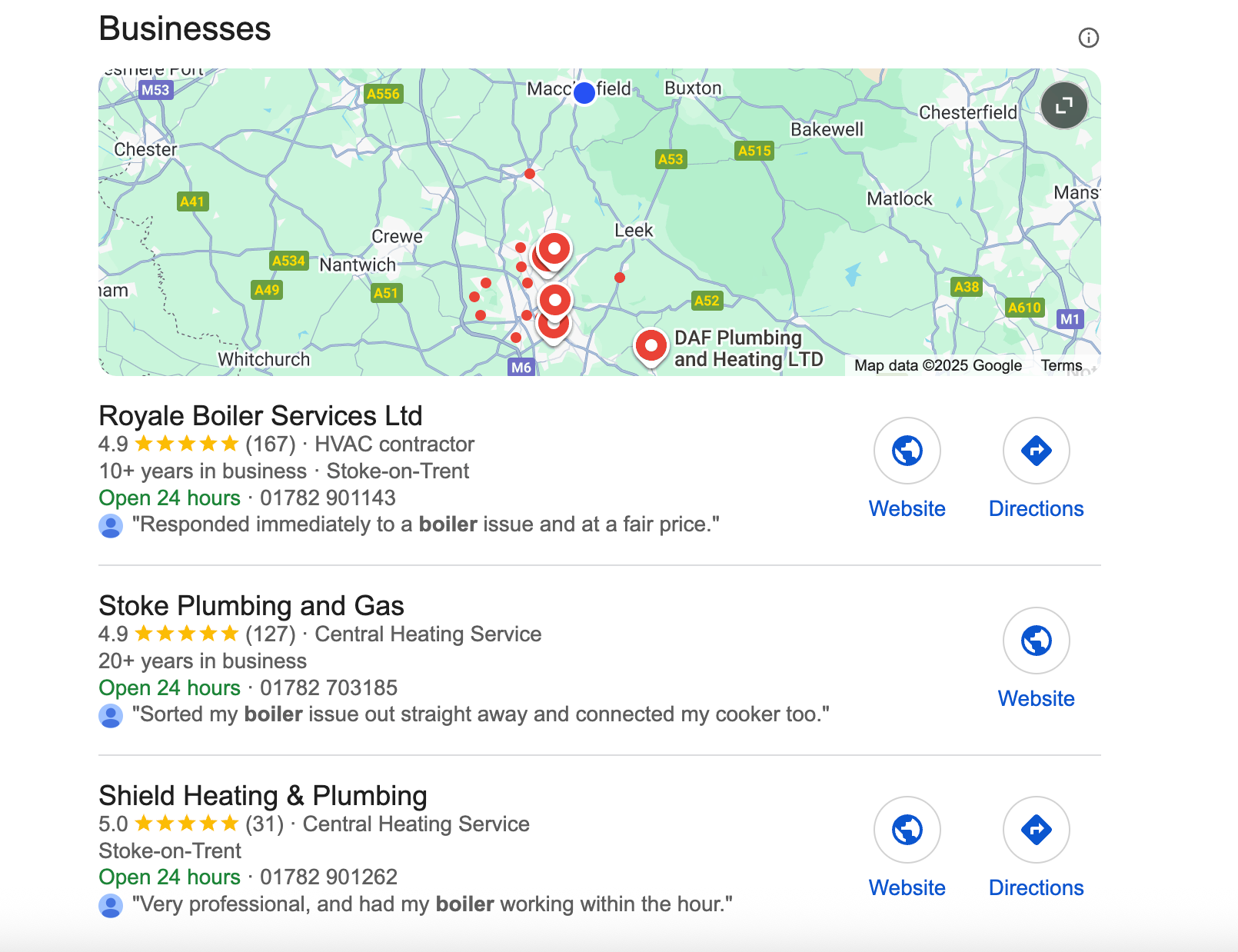
2) Auto-topics that showcase your specialisms
Google now turns repeated review phrases into clickable “Topics” on your profile (think “loft conversions” or “wedding catering”). They help searchers filter and help your listing feel relevant at a glance.
3) Bolded phrases that pull eyes to your listing
Those three review snippets on your Business Profile? Google bolds commonly mentioned terms. If people keep praising your “same-day callouts in Newcastle-under-Lyme,” that emphasis guides scanners to you.
4) Menu highlights powered by diners (hospitality only)
For restaurants, Google can build “Menu Highlights” from review language and photos. When highlights align with what people search (“gluten-free pizza in Chorlton”), you tend to win more relevant discovery. Especially in AI Mode:
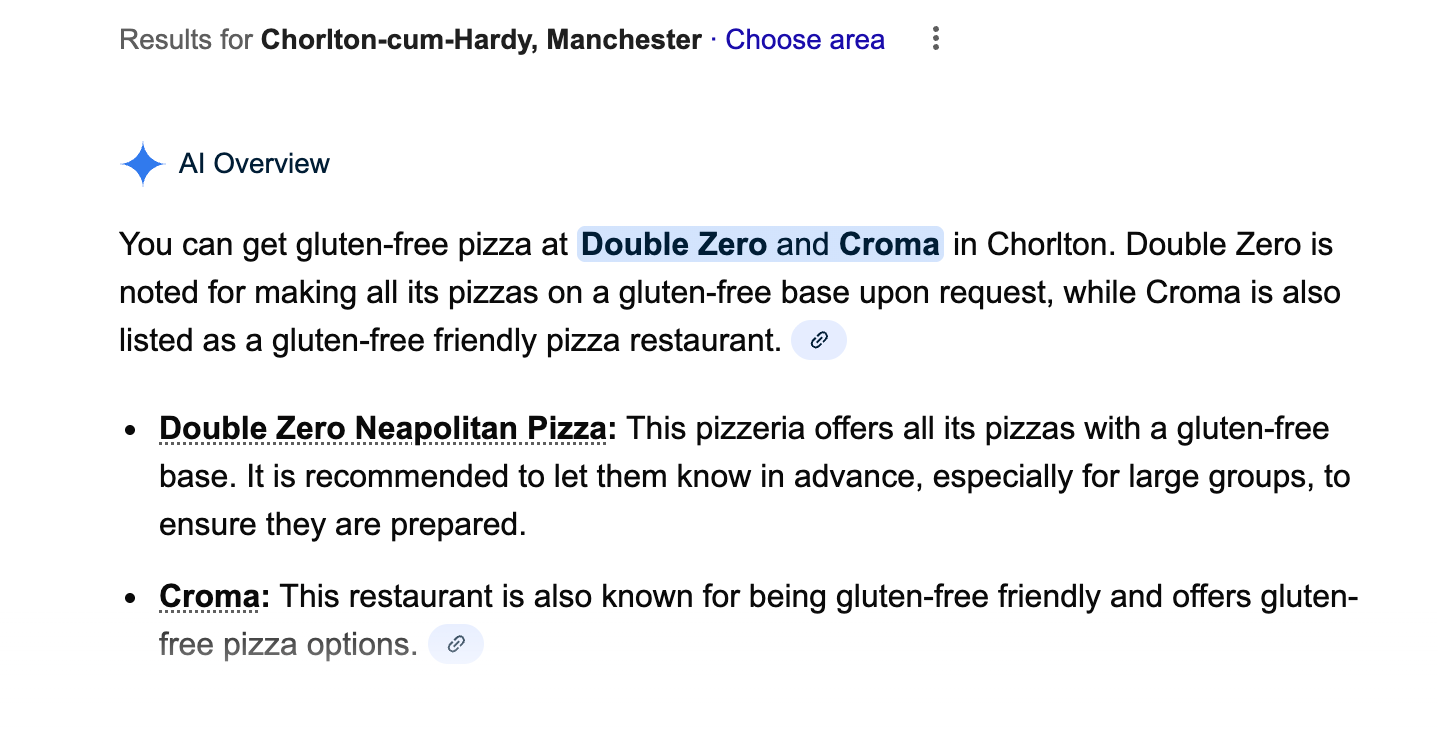
5) AI-written business blurbs that frame your brand
Google now drafts short AI editorial summaries of your place. The wording is pulled from patterns in your reviews (“cozy”, “family-run”, “open late”), so precise, photo-rich feedback nudges the blurb in your favour. See above RE: Gluten Free Pizza!
6) AI review round-ups that set expectations
Maps also shows AI-generated review summaries. If customers consistently mention “emergency plumbing in Stoke” or “wedding hair in Sale,” that language is more likely to appear in the round-up — and that sets buyer expectations before they click.
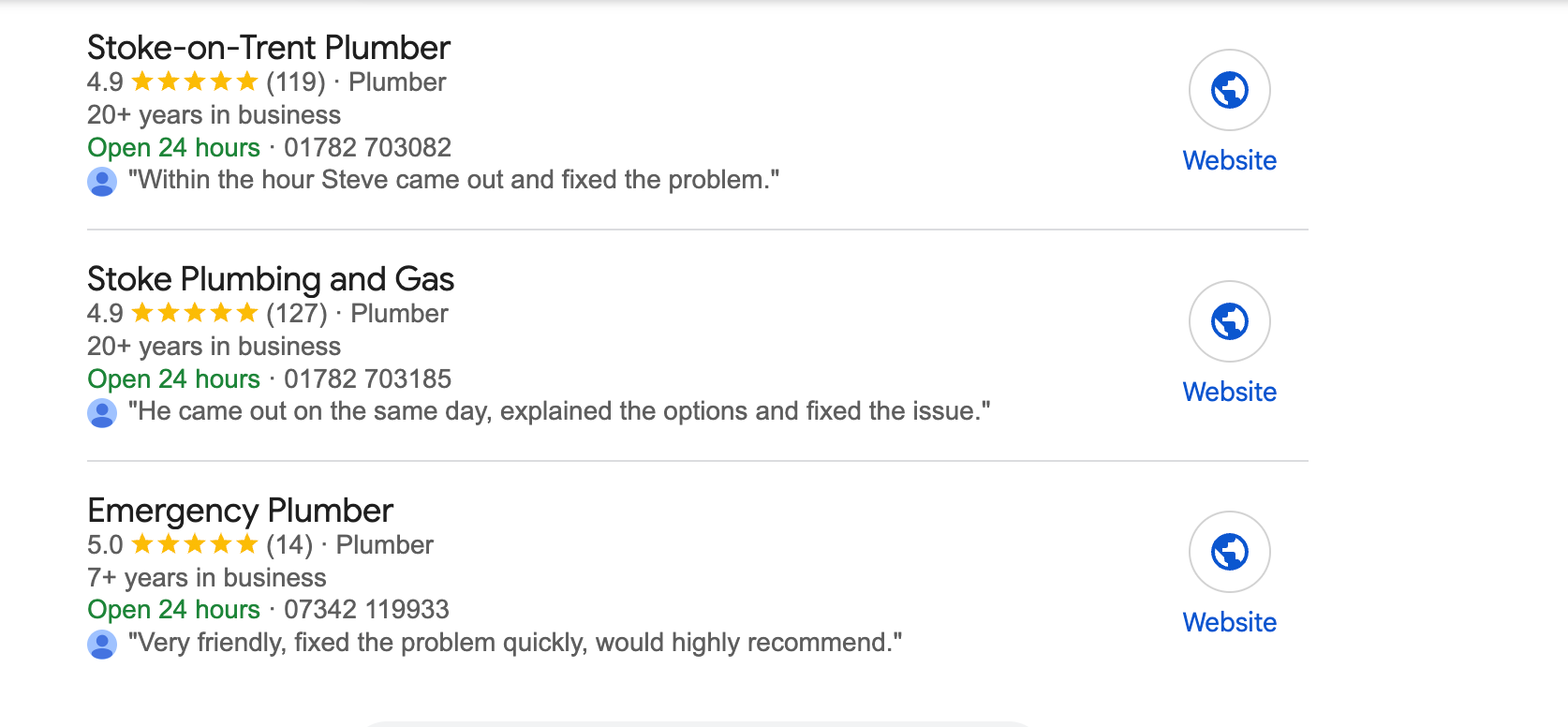
In the example above, the “emergency plumber in Stoke”, the highlighted words from the reviews all pertain to the speed of the expected service. Google wants to match the answer to the intended question as well as it can.
7) “Ask about this place” is replacing old Q&A
Google is phasing out traditional Q&A in favour of an AI feature that answers from your review corpus. Detailed, specific reviews now double as your living FAQ.
Where AI Overviews fit in
For many local searches, Google can show an AI Overview before listings. Being cited or aligned with these summaries hinges on clean entities (name, services, areas) and consistent, specific review language that supports what the AI decides to surface. Expect some drop in classic profile impressions, offset by higher-intent exposure when you’re referenced by the AI layer. This makes the clarity of messaging on your site even more important than it was.
What’s new in Maps’ AI summaries
Google has also rolled out AI-generated summaries on Maps business pages. If your reviews are thin or generic, the summary can undersell you. If they’re specific and photo-rich, the summary reinforces strengths and accelerates decisions.
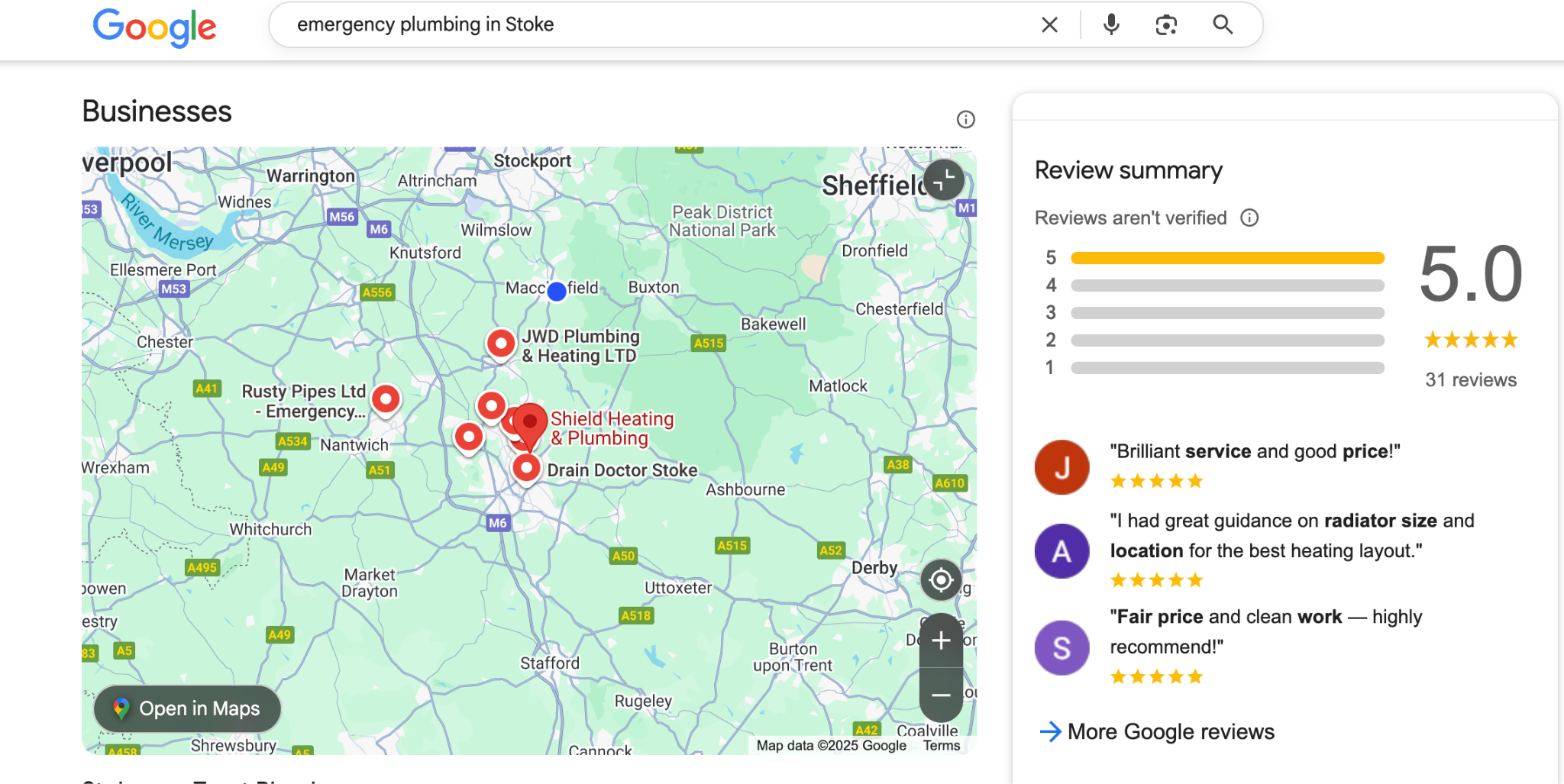
Ask better (and stay natural)
Don’t stuff keywords or tell customers what to write. Instead, tweak your request so detail happens organically:
- After a job:
“If we solved the issue, a quick review would help others in Stoke/Staffs/Manchester find us. What did we fix, where, and how was the service?” - After a product sale:
“What stood out about the product? Any photos in use at your home or venue?” - In uncertainty (walk-ins, multiple services):
“What did you have done, where are you based, and why did you choose us?”
This approach reliably produces longer, keyword-rich, photo-supported reviews — without sounding contrived.
Build the habit, not a campaign
- Add a short review ask and link to every completion email, invoice and WhatsApp follow-up.
- Rotate two or three short prompts so customers aren’t fed boilerplate.
- Reply to every review within 48 hours; pick up themes and add context (opening hours, parking in Hanley, out-of-hours coverage in Macclesfield). That keeps your profile “alive” and trains the AI summary towards your strengths.
Optimise your profile for AI layers
- Pin your core services and neighbourhoods (e.g., “uPVC window repairs – Longton, Meir, Fenton; emergency callouts Greater Manchester”).
- Keep categories, services and descriptions tidy and consistent with how customers talk about you in reviews.
- Add original photos from real jobs; they’re used alongside review text in multiple surfaces.
Quick local playbook
- Boiler firm in Stoke: aim for reviews that mention area + problem + speed (“same-day fix in Penkhull”).
- Café in Sale: nudge mentions of dishes and diet terms so Menu Highlights and Topics show (“vegan breakfast, kid-friendly”).
- Salon in Stafford: encourage review photos and notes on specialty services (“bridal trials, mobile to Stone”).
- Events caterer in Chorlton: get clients to name the venue and headcount so AI summaries reflect real capabilities.
Why this matters now
Reviews now influence not just rankings but the presentation of your brand across classic results, Maps, and AI surfaces. Rich, local, specific feedback compounds into Topics, bolded snippets, highlights, AI blurbs and AI review round-ups — each one nudging a local buyer closer to “call” or “book.” Let’s also remember that people are not just asking Google questions about local goods and services any longer - other AI tools are available, but guess what? Google will be there (the AI’s) first point of call for information so ticking the Google box often ticks a. another answer engine's box too.
Get in touch today
complete the form below for an informal chat about your business






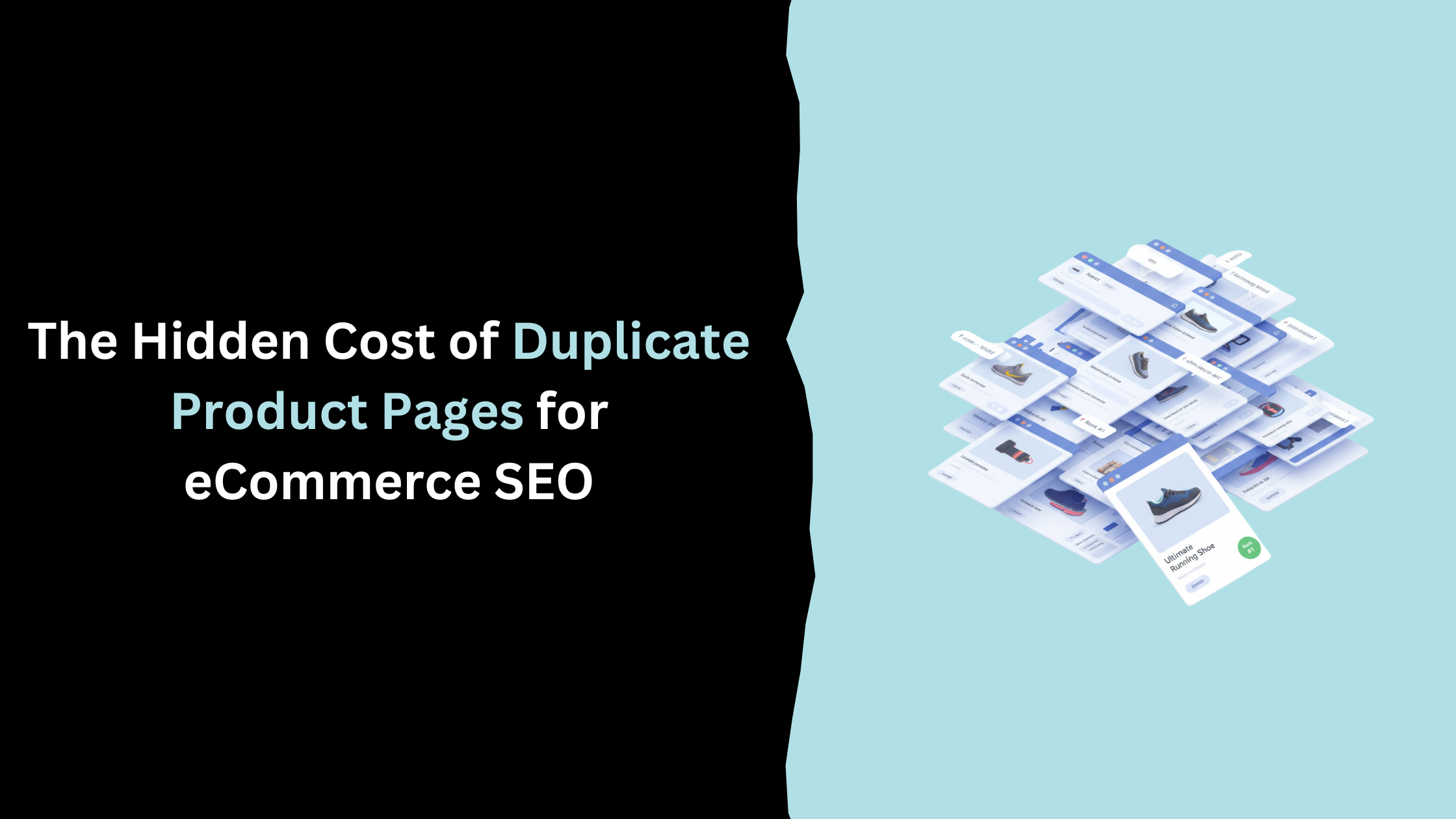
.png)
